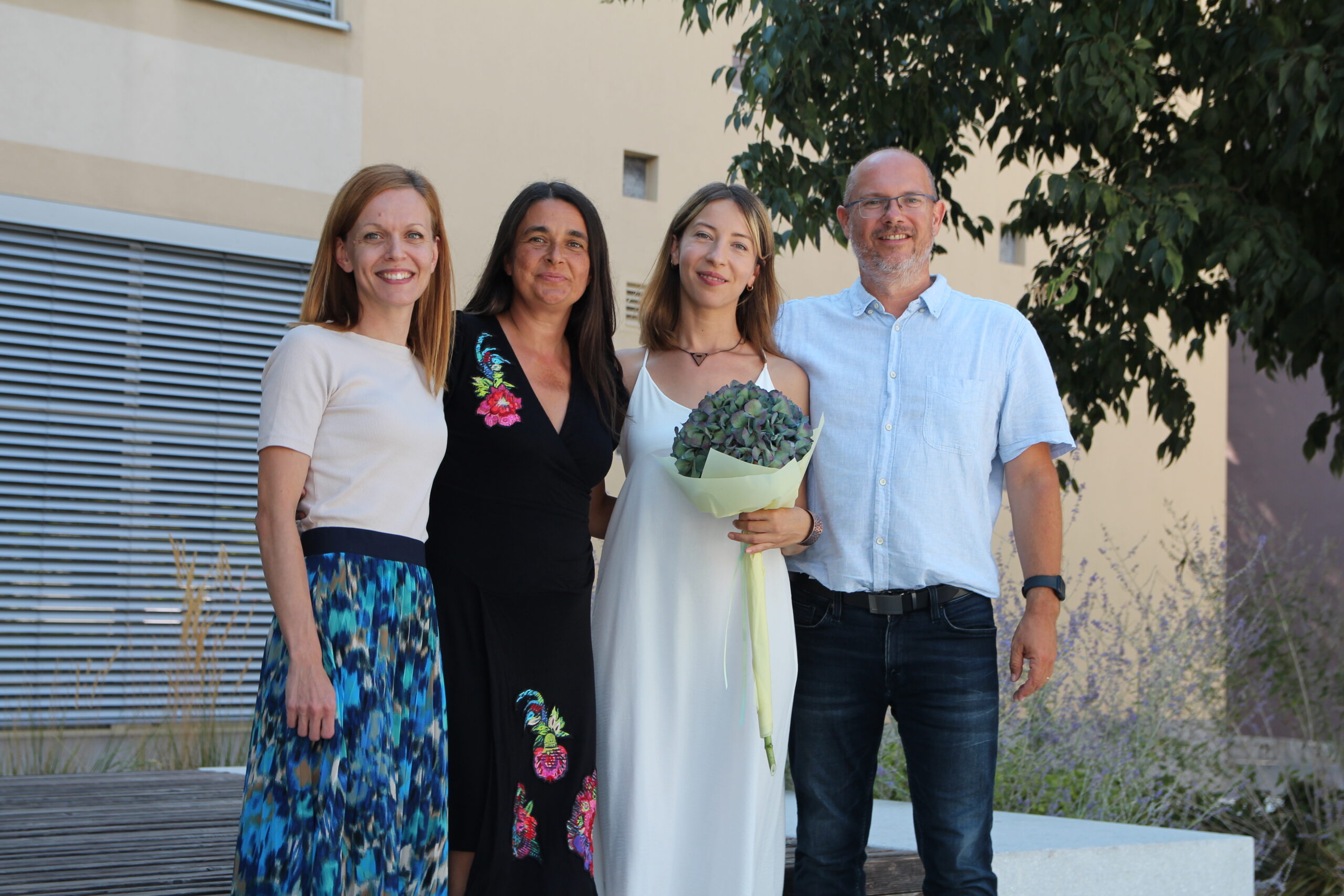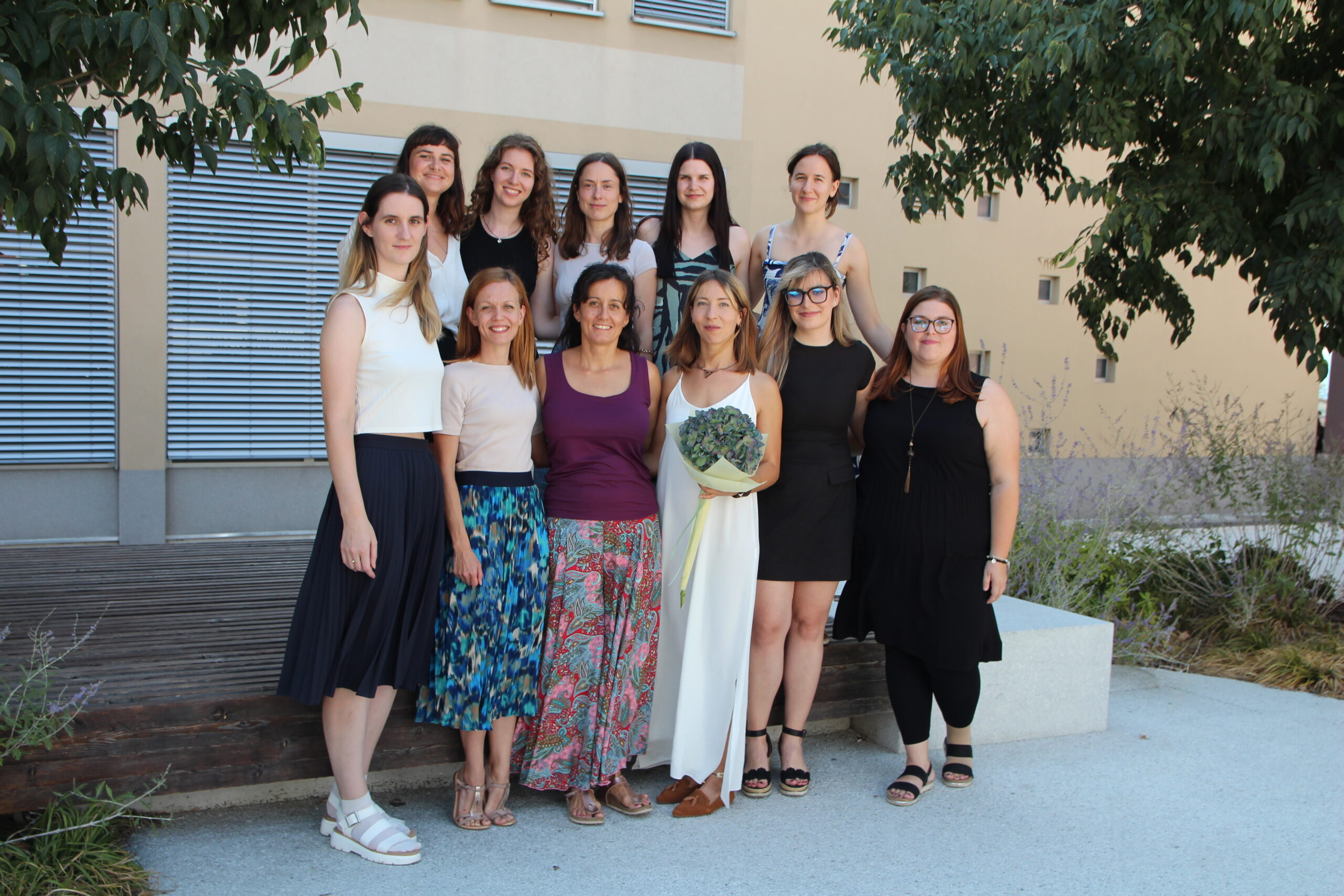Today, on 13 August, Nina Krohne successfully defended her PhD thesis entitled Suicidal Behavior in Women: The Role of Intimate Partner Violence and Resilience to Suicidality, under the supervision of Associate Professor Vita Poštuvan and Professor Diego De Leo.
Dr Nina Krohne is the first PhD student of the Suicidology and Mental Health programme, which is being implemented at the UP Faculty of Mathematics, Natural Sciences and Information Technologies in collaboration with the UP IAM Slovene Centre for Suicide Research since 2021.
It is a specialised study programme that prepares students for independent and internationally competitive scientific research work in the fields of suicidology and mental health. At the same time, it is the first doctoral programme in the field of suicidology in Slovenia, which is an important national asset due to the problems of suicidal behaviour and the need to develop high-quality research in the field.
Dr Krohne’s thesis addresses two important public health issues – female suicidal behaviour and intimate partner violence. Female suicidal behaviour is less well researched due to the lower suicide rate among women compared to men, while intimate partner violence is part of a larger societal problem – gender-based violence, which is rooted in patriarchal societal structures. Her thesis explores the epidemiological and psychological dimensions of these issues, and in particular focuses on women’s experiences and provides a theoretical basis for interventions in this area.
Mentor Dr Vita Poštuvan said about the thesis: “Nina’s work also represents a scientific and research excellence in the use of more advanced methods of data analysis, e.g. through a complex network analysis or relationships between the concepts studied and through a detailed segmentation of the population of women experiencing intimate partner violence: that is, how they differ in their coping, what helps them in crisis situations and also in their ability to leave dysfunctional relationships. This also gives this scientific work an applied clinical-psychological relevance, as it will help psychological interventions targeting this vulnerable population.”
We would like to congratulate the new Doctor of Science and wish her a successful continuation of her research career!




